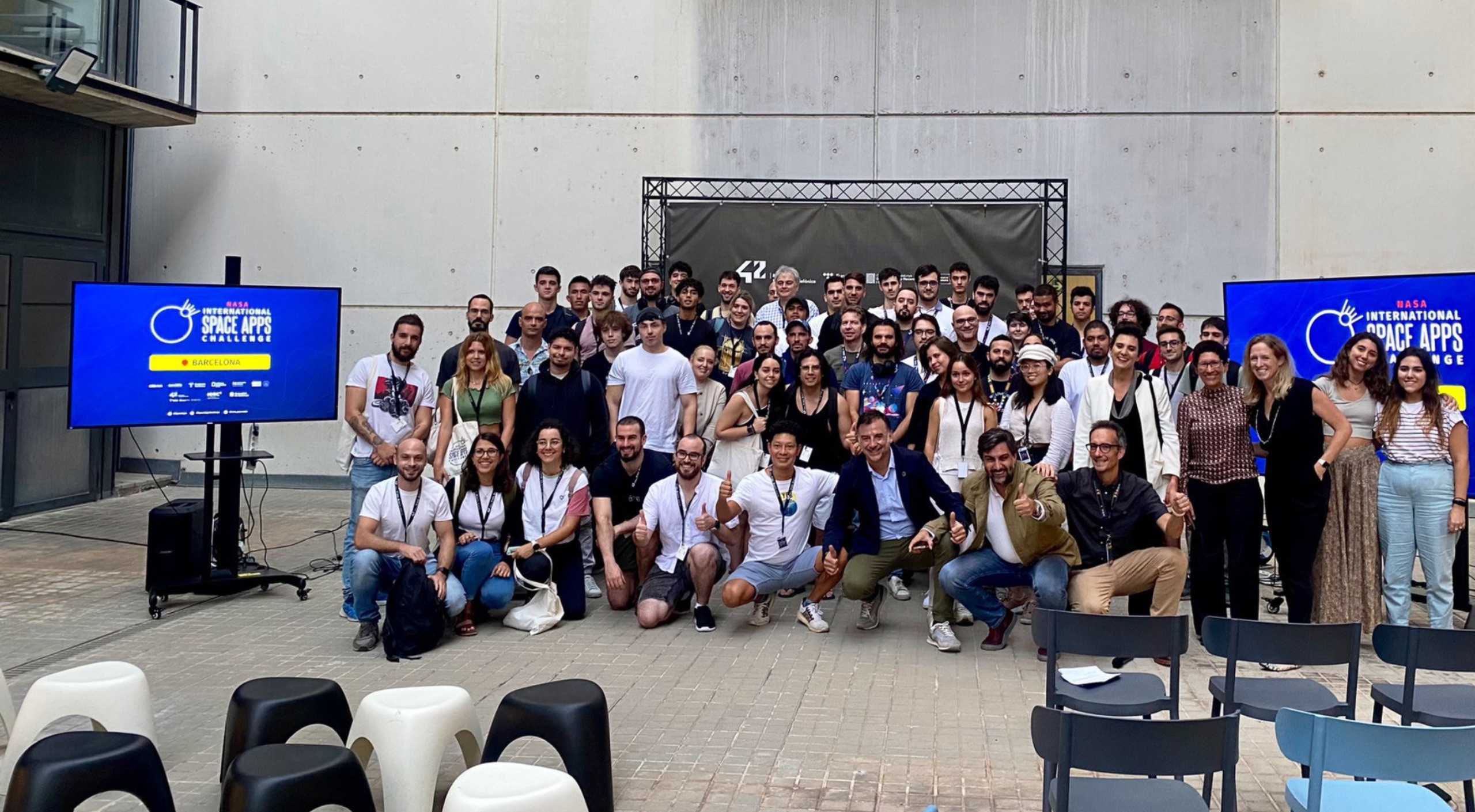27.12.2023
42 programming campuses will host NASA’s Space Apps Challenge again in 2024
NASA International Space Apps, the largest STEAM hackathon on the planet, which this year brought together nearly 50,000 people from all over the world, is facing its last phase before announcing the 10 winning teams that will be able to defend their projects in Cape Canaveral at NASA in front of a jury of experts.
Of the more than 580 teams that have taken part in this edition of the hackathon, ‘Galatic Space Coders’ has reached the final, a team whose members include a student from the 42 Barcelona Fundación Telefónica campus. Among the winners of this first round, two teams from 42 Urduliz and 42 Malaga, respectively, ‘Team Rocket’ and ‘Ecoflush’, have been recognised with an honourable mention among the more than 60 teams awarded with this type of mention.
42 programming campuses will host NASA’s Space Apps Challenge again in 2024

The free programming campuses of Fundación Telefónica hosted the last edition of this hackathon, the largest in the world. An appointment that they will repeat in 2024.
Last October, the 42 campuses in Urduliz (Bizkaia), Malaga and Barcelona, which Telefónica Foundation has set up in collaboration with the Provincial Council of Bizkaia, Malaga City Council, the Andalusian Regional Government and Malaga Provincial Council, as well as Barcelona City Council and the Generalitat de Catalunya, respectively, became the venues for this appointment with innovation and technology.
The more than 200 people participating in the three campuses, enthusiasts of science, technology, engineering, art and mathematics, worked for 48 hours to solve 30 real challenges posed by NASA scientists and engineers.
Among the winners of this first round, two teams from 42 Urduliz and 42 Malaga, respectively, ‘Team Rocket’ and ‘Ecoflush’, have been recognised with an honourable mention among the more than 60 teams awarded with this type of mention.
A 42 Barcelona student among the finalists
Among the teams that have made it to the final is ‘Galactic Space Coders’, a team made up of six technology-enthusiastic web developers, one of whom is a student at the 42 Barcelona programming campus and the rest of the team is made up of five students from Barcelona Activa’s IT Academy.
Their project, The Phytoplankton Adventure is an educational web game that immerses participants in the world of phytoplankton and the oceans. It involves taking care of their own virtual phytoplankton, learning about the oceans, climate change and the importance of phytoplankton. As phytoplankton grow, players understand their role in balancing the oceans and fighting climate change by absorbing carbon dioxide. The project is free on GitHub and is aimed at students to raise awareness of the importance of oceans and phytoplankton in a fun way.
The project is now being evaluated with the rest of the semi-finalists by a committee of experts who will choose the top 10 to present their solutions to NASA experts at the Kennedy Space Center (Cape Canaveral, USA) in 2024.